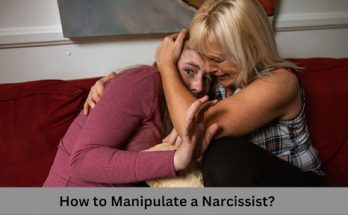The physical symptoms of anxiety can easily make a person forget the real reasons for feeling anxious. That is why finding the real causes of anxiety is essential for treating the condition quickly. To discover the real cause of your anxiety, take some time to explore your feelings. Do not rush to come up with a quick solution. Explore the source of the anxiety, and find out what triggers it.
There are many effective ways to handle anxiety and overcome it. One of these is by absorbing the compounds from the buds of a grown bruce banner strain seeds.
Table of Contents
Deep Breathing Exercises
One of the best ways to alleviate stress and anxiety is to practice deep breathing exercises. There are many different types of breathing exercises that you can use to help with anxiety. Some of these include belly breathing, alternate nostril breathing, and box breathing. Try practicing several different types of breathing exercises, and find one that works best for you. Some people even prefer to use belly breathing over other forms of breathing. But no matter what you choose to practice, you will find that deep breathing is an effective way to deal with anxiety.
Several studies show that people who regularly practice deep breathing exercises for anxiety are less likely to suffer from future attacks. These exercises reduce the symptoms of anxiety by teaching your brain to distinguish between tension and relaxation. While unconscious tension can trigger an anxiety attack, the body’s natural response is to remain relaxed and alert. This helps combat ongoing anxiety. However, you should always consult a doctor before trying any breathing exercise. For more information, check out the No Panic website.
Leaning On Family And Loved Ones
Talking about anxiety is a great way to de-stress and explore causes. However, it should not be forced; it should be a natural process. When talking with someone you love, make sure that you’re interested in what they have to say, and not just trying to solve the problem. Remember, the point of talking about anxiety is to support them and give them the space to work through the issues that have been troubling them. Intentional listening is essential to establishing this connection.
During times of intense anxiety, you may find it difficult to maintain your own mental or physical wellbeing. It can be hard to remain compassionate when you feel like you’re failing to help your loved one. But remember, your overall perception of them hasn’t changed. They’re still the same person. You’re not broken. Staying connected to the positive aspects of your identity will also help them cope with anxiety and stress.
Focusing on the things you can control
If you suffer from chronic worry, ask yourself “what can I control?” This simple question can help you to be proactive and release worry when you know there is nothing you can do about a situation. Practicing mindfulness and focusing on the positive aspects of life can help you manage anxiety and find relief from your chronic worries. It is best to practice mindfulness and meditation daily to improve your mental health and cope with anxiety.
Try to identify what triggers your anxious feelings. If it is something specific or uncontrollable, label it as such. It can help you to determine exactly when the anxiety strikes. This will help you avoid recurring thoughts about the situation. Try to identify the physical signs of anxiety before they become damaging. For example, if you feel tingly or dizzy when you’re stressed, you should schedule an appointment with a therapist to help you focus.
Identifying your triggers
Knowing your anxiety triggers is crucial for dealing with the condition. While everyone experiences anxiety in different ways, the following tips will help you identify yours. By identifying your triggers, you can develop targeted coping strategies. It is possible to overcome anxiety by identifying your triggers. Listed below are some of the most common triggers. If you are unable to identify your triggers, you should consult a professional to find effective treatment options.
Keep a thought journal. Write down everything you think about during times of high emotions. Write down physical sensations, temptations, and where you were when the event took place. By reflecting on these events, you can start to identify patterns that can be avoided in future situations. This is an important first step in dealing with anxiety. Then, start developing coping strategies. It may take some time, but it’s worth the effort.
Exercise
Exercising as a way to deal with anxiety is a great way to divert your attention from thoughts about your apprehensions. Anxiety often arises when we are afraid of not being able to accomplish something well. The media, for example, encourages people to give 150% to their jobs and other responsibilities. Then advertisers promote products as a solution to your anxiety.
There are many types of exercises you can perform as a way to handle anxiety. Progressive muscle relaxation, or PMR for short, helps reduce anxiety and improves sleep quality. This type of exercise involves tensing and relaxing all muscle groups in a single session. Start by lying on your back, stretching and extending as comfortably as possible. Then, breathe in and tensing the first muscle group for 10 seconds. Once you have completed this, relax the muscle group and count backwards from five. You can practice this exercise daily in combination with psychological therapy.
Aromatherapy
There is research that shows that aromatherapy can help with anxiety. A study conducted by Babashahi et al. found that subjects who regularly inhaled lavender essence decreased their anxiety levels. However, the authors noted that participants’ expectations of relaxation were more important than LEO. Hence, they recommend a variety of therapeutic approaches to ease anxiety. But how exactly can aromatherapy work for anxiety? And is it really helpful?
While aromatherapy for anxiety can help reduce stress, there are a number of side effects involved. For one thing, some essential oils should not be used on the skin at full strength. Others can cause allergic reactions. Even worse, some essential oils should only be used by those trained in aromatherapy. In addition, you should seek professional advice from a mental health professional if you’re unsure of which essential oils to use. They’ll know how to use them safely and effectively.





